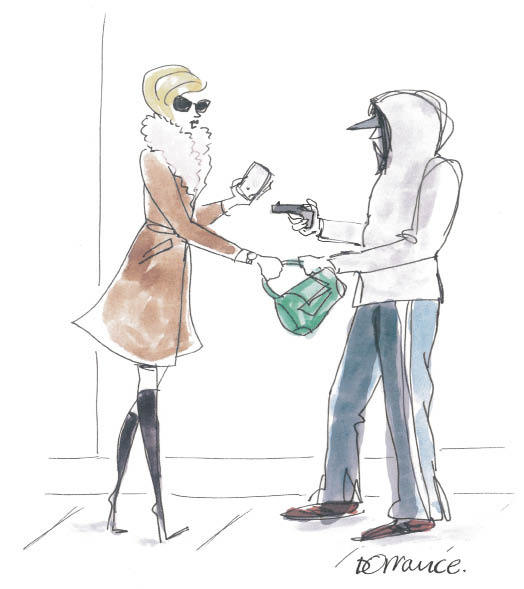‘We are humbled,’ said Keiichi Hayashi, ‘we are humbled by the power of nature.’ The Japanese ambassador to the UK was talking on Monday morning’s Today programme on Radio 4.
‘We are humbled,’ said Keiichi Hayashi, ‘we are humbled by the power of nature.’ The Japanese ambassador to the UK was talking on Monday morning’s Today programme on Radio 4. It was a stark and moving moment. He spoke slowly, gently, thoughtfully, choosing his words carefully, the shock of what has happened in Japan echoing through his voice. In contrast, Jim Naughtie fumbled clumsily on air, unsure what to say, or how. He was in Japan, not Mr Hayashi. ‘You’ll know that I’m talking to you from Sendai.’ No wonder he sounded embarrassed.
Who made the decision that Naughtie should do the interview with the ambassador and not the London team? It was such a weird reversal of the natural order. Insulting, too, as Naughtie began telling the ambassador what he was witnessing in Sendai — as if the Japanese Embassy in Mayfair would not have had much better access to such information from their own Japanese contacts. ‘As I said in the beginning,’ said Mr Hayashi, ‘I feel we are humbled and awed…’ Mr Naughtie ended the interview, ‘Thank you very much for joining us from London.’
Back in 2009 Sir David Attenborough talked about the making of his new radio series on the natural world on Libby Purves’s Midweek programme (Radio 4). She asked him, ‘Does wildlife make you happy?’ To which he replied that his work gave him great consolation in times of personal trouble. ‘A huge consolation.’
It was an inspiring conversation, but when a week or so later I came to listen to David Attenborough’s Life Stories, his short weekly essays on Friday evenings (repeated Sunday mornings, Radio 4), I invariably switched off after only a couple of minutes. It was odd, but I was never engaged, never wanted to find out what he was talking about.
Now he is back with a new series of mini-lectures on any subject zoological or botanical — from the lumpen potato to the dazzling iridescence of the sapphire-spangled emerald hummingbird. Once again, I find myself turning him off, unable to listen for longer than a few seconds, not even when trapped in a traffic jam. It’s very puzzling.
The short talk has always been my favourite form on radio; the best way to learn anything. Not too long, no time to get bored, an easy way to absorb a story, a nugget of information. Neil MacGregor’s A History of the World in 100 Objects took the form to its zenith. Learned, but never dull; entertaining, but never tricksy.
Attenborough, a brilliant television broadcaster, has been travelling the globe pursuing his obsession with the untamed world we live alongside for more than 60 years. His knowledge is vast, his enthusiasm boundless. But on radio it just doesn’t come across. His essays sound as if they have been written for a lantern lecture at the Royal Geographical Society, a darkened room, a single light above his lectern, a screen behind him showing a sequence of images to illustrate his talk. On radio, it’s impossible to follow what he is saying. There are just too many words, too much information.
In last week’s programme he gave us ‘Foreign Fare’ — the potato, the artichoke, the pepper and the tomato — explaining their botany but also how they came to be here in this country, far from where they originated. Talking about Columbus and his voyage to the Spice Islands, he said, ‘One of his main purposes…was to try and get to the source of those most valuable domestic commodities of the time…’ On paper it sounds fine. On air there were just too many modifiers; it felt like being lost in a dense thicket with nothing to help us find our way back through his meaning.
I suspect that his talks were conceived and written up as a book and then became a radio programme. Beautifully cheap to make, but incredibly difficult to listen to, unless edited for the ear, not the eye.
If I had written a column last week it would have focused on last Friday’s powerful Radio 4 play Direct Red, which if you’re reading this on Thursday you’ll just about have time to catch on Listen Again. It’s not for the squeamish, but it’s the best play I’ve heard in months. Gabriel Weston based it on her experiences as a junior surgeon, weaving together a series of disparate but pungent memories rather like an episode of Casualty, but with so much more subtlety. Hattie Morahan, as the narrator, makes sense of the connections, her voice so soft and yet beguiling, drawing us in so that you just can’t turn her off, even when she becomes really gruesome, describing how she stopped a patient’s guts sliding off the operating table towards the floor. Tina Pepler adapted the script; Kate McAll directed.






Comments